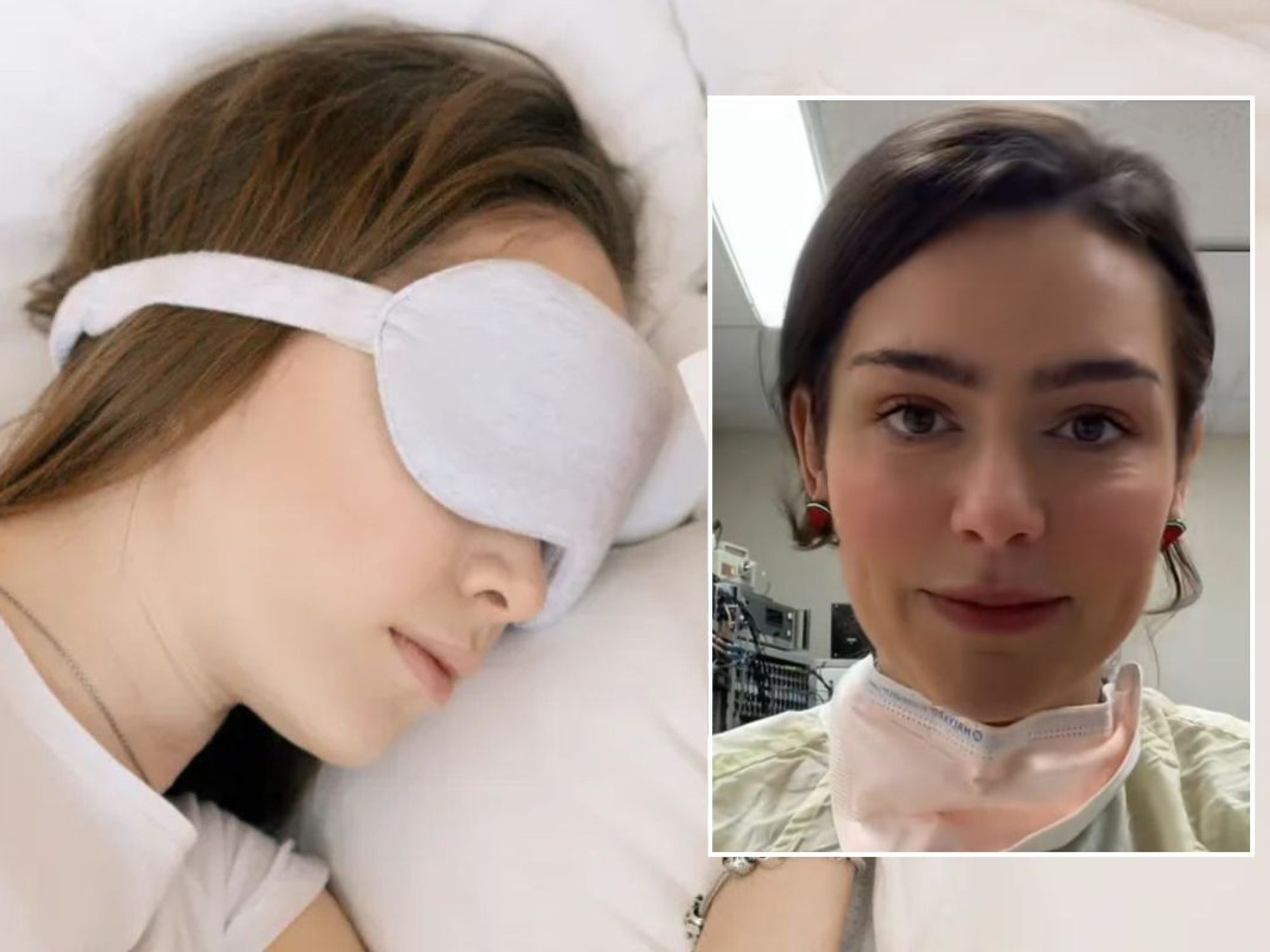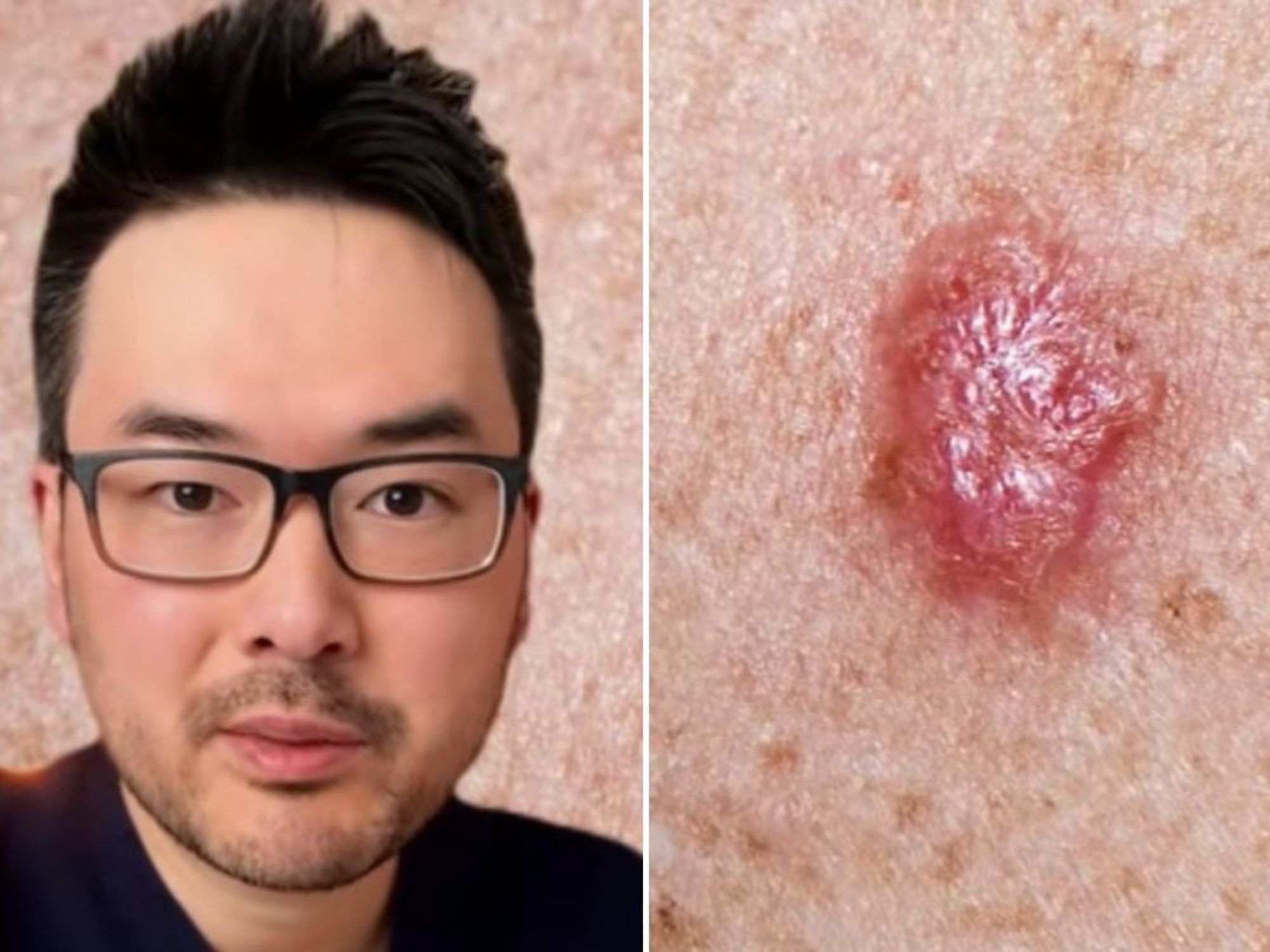The foods you eat can either help or hinder your vision
Getty Images
GB News has launched a new weekly series looking at your health with a key focus every week. Today our digital health editor Adam Chapman explores how the foods we eat can impact our eyes - for better and for worse.
Don't Miss
Most Read
Trending on GB News
It's 1940. Germany is trying to gain air superiority in preparation for an invasion of Great Britain.
However, things are not going to plan. The Royal Air Force is using onboard radar to intercept German bombers on night-time London raids.
To hoodwink Adolf Hitler, the RAF popularises a myth that carrots are giving their fighter pilots the ability to see in the dark.
This odd piece of wartime propaganda proves highly effective but it also gives birth to the rumour that carrots can enhance night-time vision. Sadly, carrots will not give you perfect clarity at night, but there is a kernel of truth to the old wives' tale.
"Vitamin A is essential for the synthesis of rhodopsin, a pigment found in the retina that is crucial for night vision," explained Michelle Routhenstein, registered dietitian nutritionist at Entirely Nourished.
So if you have vitamin A deficiency, eating carrots can help you see better in low-lit conditions.
Carrots are rich in an orange pigment called beta carotene. Enzymes in the body convert beta carotene into a form of vitamin A known as retinol, which is vital for eye health.
And they are not alone. Powerful antioxidants, vitamins and minerals have all been shown to improve your vision and overall eye health.
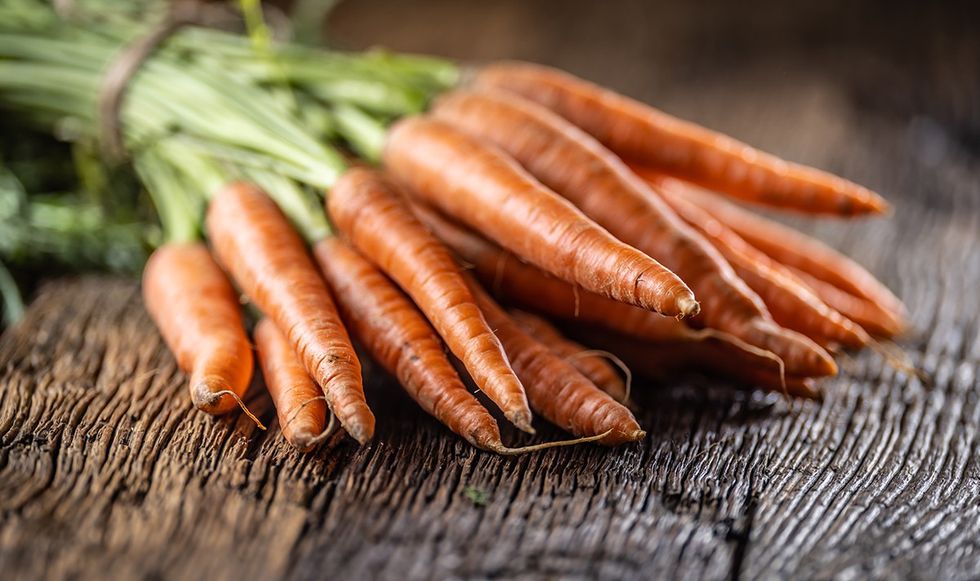
Carrots are rich in an orange pigment called beta carotene that's vital for eye health
Getty Images
Antioxidants are the real "MVPs", says Doctor Saya Nagori, expert ophthalmologist and founder of Eye Facts.
These "nutritional superstars" help combat oxidative stress and protect the delicate tissues of the eye, Doctor Nagori says.
Colourful fruits and veggies like leafy greens, berries, and citrus are packed with antioxidants such as lutein, zeaxanthin, and vitamins A, C and E.
Lutein and zeaxanthin are particularly beneficial. These antioxidants, also known as carotenoids, are found in high concentrations in the retina, particularly in the macula.
"They play a crucial role in maintaining the health of the macula and protecting the eyes from harmful light-induced oxidative damage," Ms Routhenstein explained.
In fact, a landmark study called the Age-Related Eye Disease Study (AREDS) found that a specific blend of antioxidants could slow the progression of age-related macular degeneration (AMD) - a leading cause of vision loss in older adults.
Omega-3 fatty acids can also help to optimise eye health. According to Doctor Nagori, these healthy fats help lubricate the eyes and reduce inflammation.
Indeed, studies suggest omega-3s may be particularly beneficial for those who already suffer from dry eye syndrome.
"If you eat fish, the omega-3 fatty acids contained in oily fish such as salmon, sardines and mackerel can be essential to eye health, as they are similarly found in the retina of the eye," noted Doctor Rabia Bourkiza, consultant ophthalmic surgeon at OCL Vision.
Avoiding fish? Nuts and seeds are also a rich source of omega-3 fatty acids and have the "added benefit" of vitamin E which prevents eye damage, Doctor Bourkiza says.
Managing expectations
The nutrients above are critical for eye health and should not be lacking in your diet.
What cannot be substantiated, however, is that eating more of these nutrients than your eyes need will sharpen your vision further.
"So avoid claims that eating high doses of particular foods will improve your vision," advised Sonia Kelley, Senior Medical Editor at All About Vision.
LATEST DEVELOPMENTS
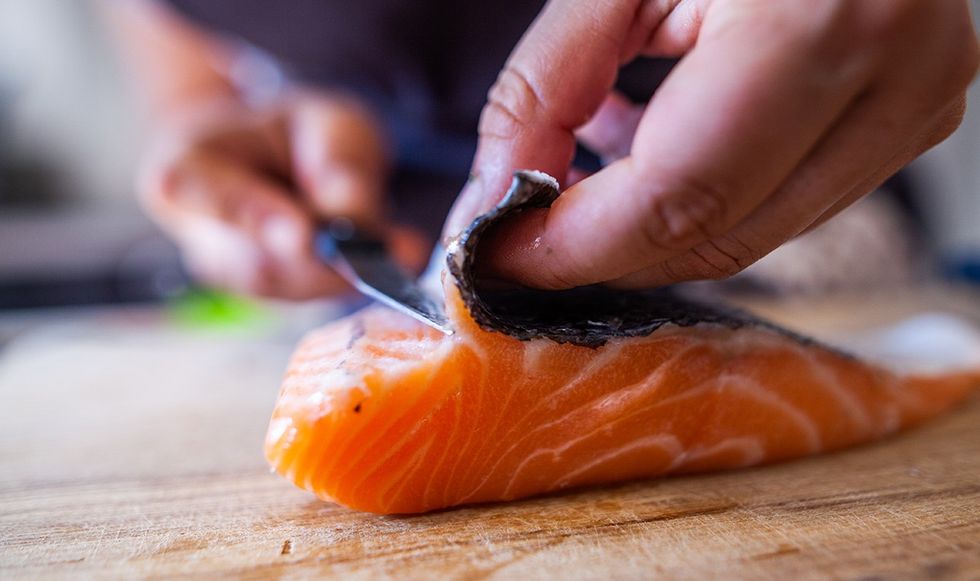
Omega-3 fatty acids found in oily fish can be essential to eye health
Getty Images
As she explains, upping your intake won’t enhance your "visual acuity" if you already have enough in your diet.
Rather than targeting one food that provides a certain nutrient, for example, carrots and vitamin A, experts advise focusing on a balanced diet that includes many different types of whole foods.
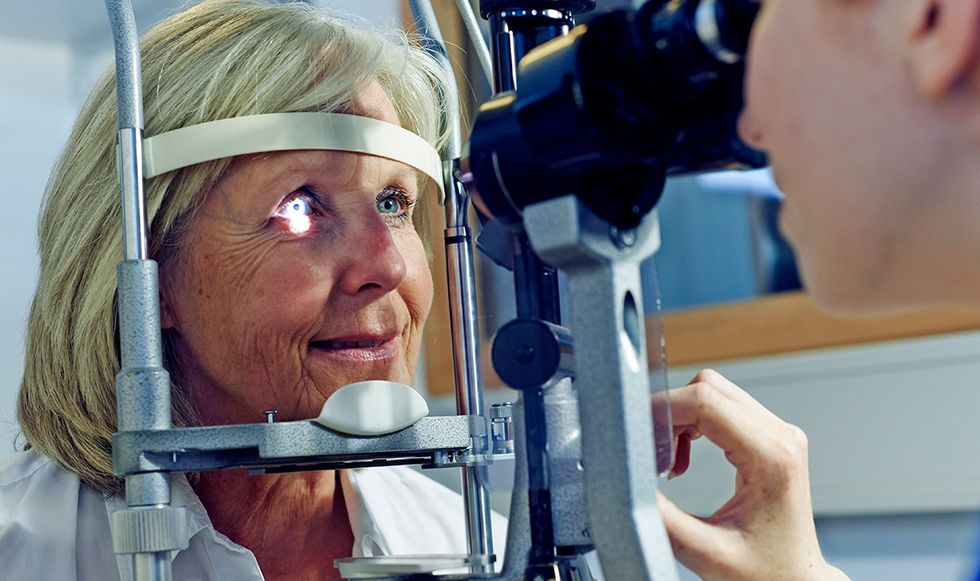
Diet is only one piece of the puzzle. Getting regular eye exams is also important
Getty Images
Avert your eyes
It's not only what you eat but what you avoid that will help to keep your eyes sharp.
“You should consider what to limit in your diet, including sugary food and sugary drinks, as these contribute heavily to the odds of contracting type 2 diabetes, which is probably the biggest diet-related condition threatening eyesight," warned Doctor Bourkiza.
He added: "High intake of carbohydrates, such as large amounts of white bread, pasta and white rice can also affect the eyes as they are broken down into sugar, which can cause diabetic eye disease and macular degeneration."
Several studies have linked refined sugar and simple carbohydrates to developing AMD.
One study conducted several years ago took a dietary survey and examined all of the participants for AMD.
The results consistently showed that those with a diet comprised of the highest glycaemic value foods also had advanced macular degeneration in at least one eye.

Several studies have linked refined sugar and simple carbohydrates to developing AMD
Getty ImagesAnother study on mice showed damage to their retina from simple carbohydrates that reversed after removing the simple carbs from their diet.
According to Doctor Nagori, avoiding highly processed junk food is your bet.
These foods are "laden with saturated and trans fats that contribute to eye problems over time", she warns, adding that these unhealthy fats can "clog blood vessels, impeding circulation to the eyes".
Indeed, processed meats like sausages and bacon, ready meals, and fried food are all high in salt and saturated fats, which can increase blood pressure and cholesterol levels.
"These can damage the delicate blood vessels of the eye and cause profound loss of vision," warned Doctor Bourkiza.
A bird's eye view
At the end of the day, experts agree that caring for your vision isn't just about what you put on your plate: regular eye exams, UV protection, and giving your eyes breaks from screens are all crucial pieces of the eye health puzzle.
"But by being mindful of how your dietary choices impact your eyes, you can give yourself the nutritional upper hand and preserve your precious sight for years to come," added Doctor Nagori.






